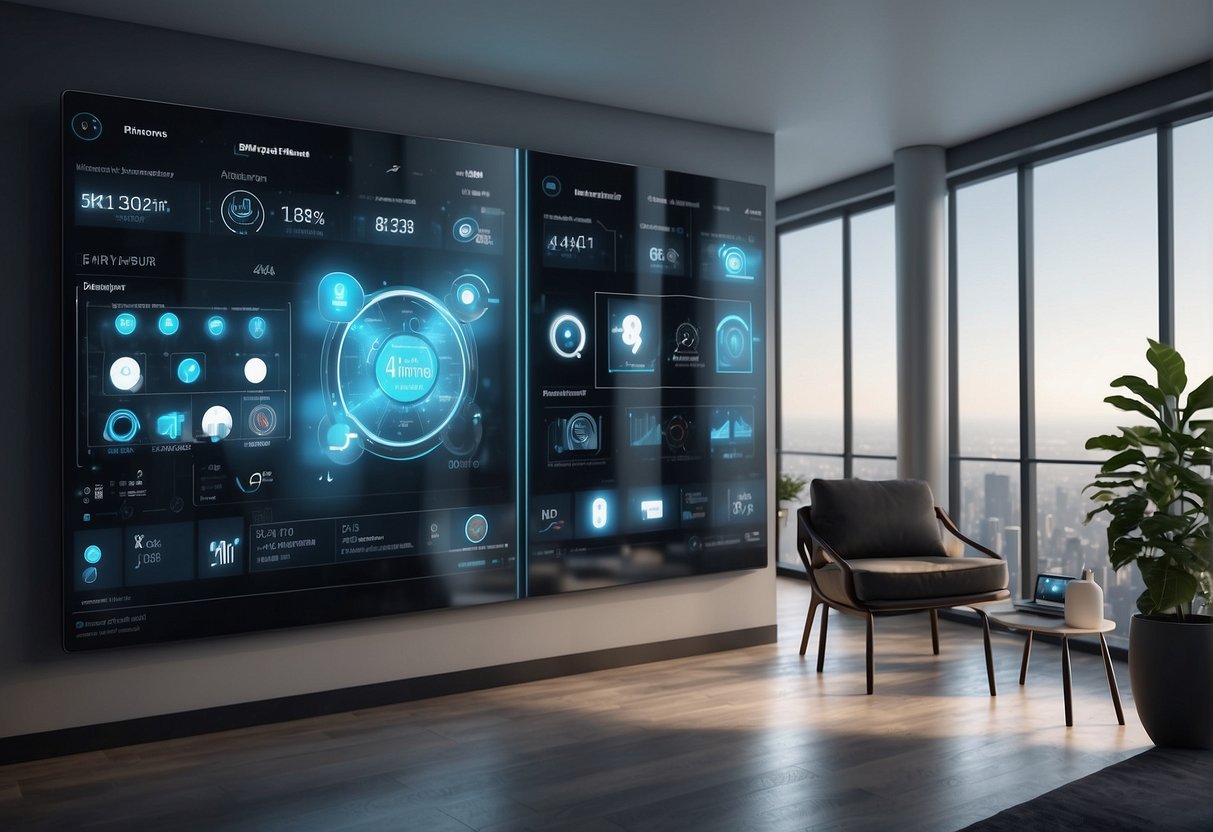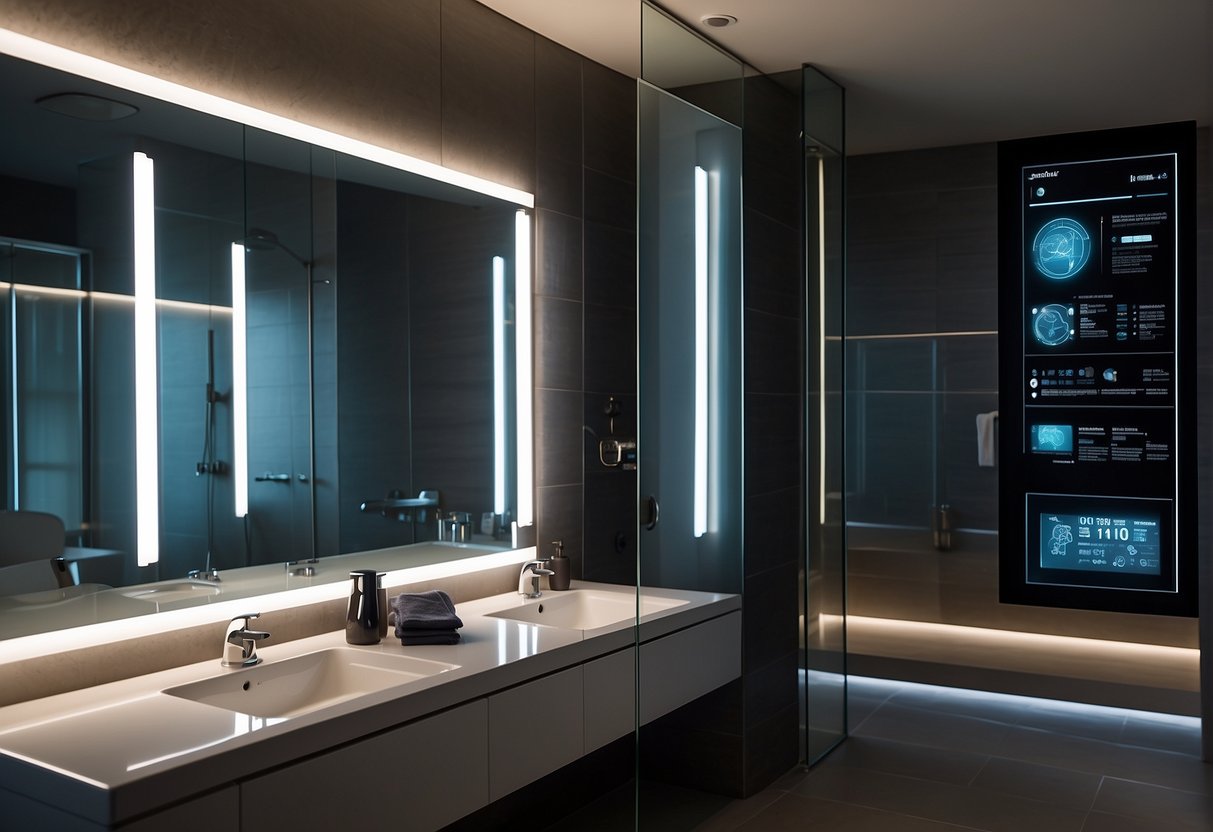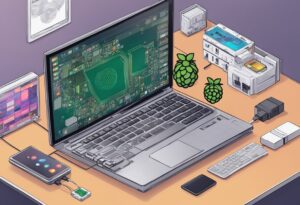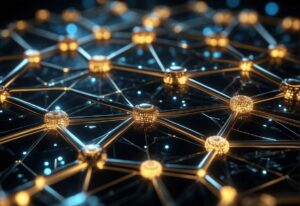The future of personal health tracking is rapidly evolving with the advent of the Internet of Things (IoT) and smart mirror technology.
Smart mirrors have been developed to provide an immersive experience for users, integrating cameras, sensors, and online APIs to enhance the user experience by providing personalized health data in real-time.
The smart mirror technology is expected to revolutionize the way people monitor their health, making it easier and more convenient than ever before.
The evolution of health monitoring technology has been remarkable in recent years, with the development of wearable devices equipped with sensors and connected to IoT networks.
These devices provide a wealth of health data, enabling personalized health monitoring, early detection of health issues, and proactive healthcare.
Smart mirrors take this technology to the next level, providing an immersive experience for users that integrates all the health data from wearable devices and other sources, making it easier for users to track their health and make informed decisions about their health.
The potential applications of smart mirrors in health and disease management are vast, ranging from personal training to medical diagnosis and treatment.
However, there are also significant challenges and considerations that need to be addressed, such as privacy and security concerns, interoperability, and data accuracy.
Despite these challenges, the future of IoT in personal health looks bright, and smart mirrors are expected to play a significant role in this evolution.
Key Takeaways
- Smart mirrors are the future of personal health tracking, providing an immersive experience that integrates all the health data from wearable devices and other sources.
- The potential applications of smart mirrors in health and disease management are vast, ranging from personal training to medical diagnosis and treatment.
- Despite significant challenges and considerations that need to be addressed, the future of IoT in personal health looks bright, and smart mirrors are expected to play a significant role in this evolution.
Evolution of Health Monitoring Technology
From Traditional Appliances to Smart Mirrors
Personal health tracking has evolved significantly over time.
From traditional appliances like weighing scales and thermometers, to wearable devices like fitness trackers and smartwatches, the healthcare industry has seen a significant shift towards smart products.
Smart mirrors, in particular, have emerged as a promising technology for personal health tracking.
These mirrors are equipped with sensors and cameras that can monitor various health parameters like heart rate, blood pressure, and body fat percentage.
With the help of artificial intelligence and machine learning algorithms, they can provide personalized health recommendations to users.
Rise of IoT and Smart Healthcare
The rise of Internet of Things (IoT) has played a significant role in the evolution of health monitoring technology.
With the increasing popularity of smartphones and smart devices, IoT has enabled the seamless integration of various health monitoring devices and applications.
Smart healthcare is a rapidly growing field that leverages IoT technology to provide personalized and efficient healthcare services.
With the help of IoT-enabled devices like smart mirrors, patients can monitor their health parameters in real-time and share the data with their healthcare providers.
This can help healthcare providers make more informed decisions and provide better care to their patients.
How IoT Smart Mirrors Function
IoT smart mirrors are the future of personal health tracking that combines the power of IoT and smart mirrors to enhance the user experience by providing real-time health data.
The following subsections describe the core components and engineering of IoT smart mirrors and their integration with wearable and embedded sensors.
Core Components and Engineering
IoT smart mirrors are equipped with various sensors, cameras, and embedded computing systems that collect and process data.
The smart mirror version 1.0 developed by researchers at the University of California, Los Angeles (UCLA) uses a Raspberry Pi and open-source software to control the sensors and cameras.
The sensors include multimodal sensors, medical sensors, and RFID sensors that collect data on various physiological functions, such as heart rate, blood pressure, and body temperature.
The cameras capture images of the user and use computer vision algorithms to analyze the data and identify changes in physique and appearance.
The data is then sent to a server in the cloud, where it is analyzed and processed using machine learning algorithms to provide personalized health recommendations.
Integration with Wearable and Embedded Sensors
IoT smart mirrors can be integrated with wearable and embedded sensors to enhance their functionality.
Wearable sensors, such as fitness trackers and smartwatches, can be used to collect additional data, such as steps taken, calories burned, and sleep patterns.
The data collected by wearable sensors can be combined with the data collected by the smart mirror to provide a more comprehensive picture of the user’s health.
Embedded sensors, such as medical sensors, can also be integrated with IoT smart mirrors to provide real-time health monitoring.
For example, a smart mirror equipped with a glucose meter can be used by diabetics to monitor their blood sugar levels.
The data collected by the smart mirror can be used to provide personalized recommendations, such as adjusting medication dosages or changing dietary habits.
Applications in Health and Disease Management

Remote Monitoring and Telemedicine
One of the most significant benefits of IoT smart mirrors is the ability to remotely monitor and manage health-related data.
With the rise of telemedicine, it has become easier for patients to receive medical care from the comfort of their own homes.
IoT smart mirrors can play a crucial role in this process by allowing physicians to remotely monitor patients’ physiological parameters and diagnose diseases in real-time.
The healthcare monitoring system can be designed to send alerts to healthcare providers if there is a change in a patient’s health status.
This can help in early detection and treatment of chronic conditions, such as cardio-metabolic diseases, and can be particularly useful for the aging population.
Remote monitoring can also help in the prevention of diseases by tracking patients’ health-related data and detecting any warning signs.
Early Detection and Disease Prevention
IoT smart mirrors can also help in the early detection and prevention of diseases.
By tracking health-related data, such as blood pressure, heart rate, and sleep patterns, the medical mirror can provide insights into a person’s overall health and well-being.
This can help in the early diagnosis of diseases and can also be used to prevent diseases by identifying risk factors.
For instance, during the COVID-19 pandemic, IoT smart mirrors were used to track the spread of the virus and to monitor patients’ symptoms remotely.
The mirrors were also used to provide mental health support to patients who were isolated due to the pandemic.
Challenges and Considerations

Data Security and Privacy
One of the main challenges of personal health tracking with IoT smart mirrors is ensuring the security and privacy of the data collected.
As these mirrors are equipped with cameras and sensors, they can collect a large amount of sensitive information about the user’s health and well-being.
This data needs to be protected from unauthorized access and potential breaches.
To address this challenge, manufacturers must implement robust security features such as encryption, secure communication protocols, and user authentication mechanisms.
Additionally, users must be informed about the type of data collected and how it will be used. They should also have control over their data and the ability to delete it if desired.
Reliability and Accuracy of Health Data
Another challenge of personal health tracking with IoT smart mirrors is ensuring the reliability and accuracy of the health data collected.
As with any technology, there is always a risk of errors or malfunctions that can affect the quality of the data collected.
This can lead to incorrect diagnoses or treatment recommendations, which can have serious consequences for the user’s health.
To address this challenge, manufacturers must ensure that their smart mirrors are reliable and accurate in collecting and analyzing health data.
This can be achieved through rigorous testing and quality assurance processes.
Additionally, machine learning and artificial intelligence algorithms can be used to improve the accuracy of the data collected and provide more personalized insights.
The Future of IoT in Personal Health

As technology continues to advance, the future of personal health tracking is becoming increasingly reliant on the Internet of Things (IoT) technology.
Predictions for Smart Mirror Advancements
Smart mirrors are expected to become more advanced in the coming years, with the integration of cloud computing, wearable sensors, wireless communication, GPS, and virtual fitting rooms.
This will allow for more accurate tracking of a person’s health and fitness levels, including their heart rate, blood pressure, and sleep patterns.
Additionally, smart mirrors are expected to play a role in early diagnosis, allowing individuals to monitor their health and detect potential issues before they become serious.
This is especially important in the current pandemic situation, where remote health monitoring has become increasingly important.
Integrating with the Broader Smart Home Ecosystem
Smart mirrors are also expected to become an integral part of the broader smart home ecosystem, which includes driver assistance, smart homes, and wireless technology.
This will allow for seamless integration with other devices and platforms, making it easier for individuals to track and monitor their health on a daily basis.
Overall, the future of personal health tracking with IoT smart mirrors is promising, with significant advancements expected in the coming years.
As technology continues to improve, individuals will have access to more accurate and reliable health data, allowing them to make more informed decisions about their health and well-being.


